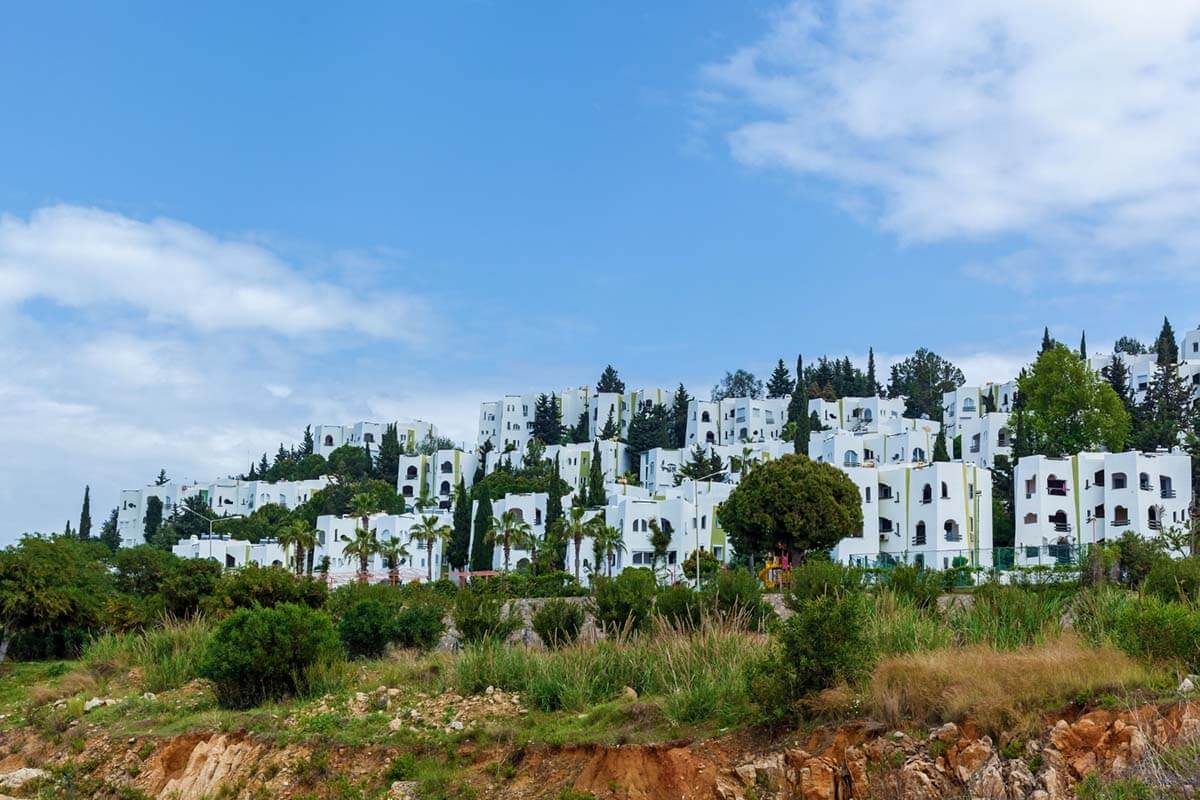
Each country has its own rules for issuing visas and citizenship, benefits, and the difference between them. There is a legal gap between residence and citizenship, the difference between them is nominal, and foreign nationals are not usually permitted to have citizenship at all, only resident cards.
Turkey, of course, has its own position on this issue, and it can be placed between the first and second groups.
The system of issuing visas and citizenship in Turkey, however, is not very complicated, and in this article, we will try to clarify this issue where possible.
Content:
- Residency and citizenship: differences, conditions, and how to issue them
- "Residency permit" and citizenship by investment
- Benefits of a resident visa and a citizen's passport
- Conclusion
Residency and citizenship; differences, conditions, and how to issue them
We will start by clarifying the terminology and move on, analyzing the difference between residence and citizenship in Turkey.
The difference between "Residency Permit" and citizenship
Although residence in Turkey can be issued via visas or residency permits, the laws have a decisive theory of what such residence in the country is.
The legislative field has two concepts: "Residency Permit" and "Citizenship".
Residency permits in Turkey are numerous and touch on the main purposes of visiting the country: there are residency permits for study, medical care, tourism, work, business, and trade.
Of course, there is also a "Residency Permit", which is what is of interest to us.
In general, such residency can be divided into 3 large groups; short-term, long-term, and tax residency.
A short-term residency permit is issued for 6 months and can be extended to a maximum of 2 years. However, if you meet the requirements for obtaining such a permit, when it expires, you may extend it.
A long-term residency permit is granted for an indefinite period when a foreigner wants to reside in Turkey but does not want to apply for citizenship.
Although there are many conditions for obtaining a long-term permit, the most frequent one is to renew a short-term permit until the period of stay in Turkey is sufficient to approve a long-term permit.
Tax residency is not a residency in the literal sense. It is created for persons who are engaged in commercial activities in Turkey and regularly visit for 6 months at a time. Its purpose is to benefit from the profits that foreign nationals could receive in Turkey as taxes.
Citizenship is an alternative to a long-term permit and makes a foreigner a citizen of the country without any restrictions.

Under what conditions can you be granted a "Residency permit" or citizenship?
Short-term residency permit
A short-term residency permit is granted to foreigners who want to stay in Turkey longer than a tourist visa allows (its duration is 90 days), and it has grounds for this.
In this case, you should visit the authorities every 180 days to obtain a permit, confirm that a person is in the country, and, if necessary, extend it.
If you need to obtain such a work permit, you can extend it to a maximum of 5 years if you provide documents from your place of work in Turkey.
In all other cases, for example, for study or treatment, or a business trip, you can be granted this visa for the duration of your stay in the country. For students (until graduation), and for patients (until the end of treatment).
There are no special restrictions and requirements to obtain such a permit. Everything you need to provide:
- Indicate the purpose of your stay in the country and the necessary documents.
- Provide identity documents that are not forged or expired.
- Have a place to stay that meets sanitary and safety standards.
- Provide documents on criminal record, must not be on the international wanted list.
- Provide the address where you will reside in the country.
Long-term residency permit
To get a long-term residency permit, you have two main options:
- Stay in Turkey for at least 8 years for regular extension of a short-term visa.
- Be an investor.
To obtain a long-term residency permit for 8 years or more, you must meet the following requirements:
- Live in Turkey for a certain period without interruptions.
- Not receive social assistance for the last three years to confirm your solvency.
- Have a permanent income to meet basic needs.
- Have valid health insurance.
- Have no history of violating the law and public order.
If you are an investor, it makes sense to consider Turkish citizenship. As pointed out above, residency and citizenship are equivalent to each other, and you can choose one of them depending on your goals.
You can refuse to fulfill the requirements to obtain citizenship and rather opt for a long-term permit.
Thus, the requirements are as follows:
- Invest in real estate for $250,000 or more.
- Invest over $500,000 in shares of a Turkish company.
- Invest more than $500,000 in government bonds, an investment fund (including a real estate investment fund), or deposit the amount in a Turkish bank account.
- Create a commercial enterprise providing more than 50 jobs.
A residency permit is a necessary stage for obtaining citizenship, except in cases when you can invest the sums of money mentioned above.
"Residency permit" and citizenship by investment
Let us briefly focus on investments required to obtain a residency permit or citizenship.
Investments in general
There are no restrictions for foreigners to invest in Turkey. They can buy government bonds, invest in funds, buy shares of Turkish companies, invest in promising businesses, and startups, and open their own business independently or with anyone else.
There are several exceptions for professions related to pharmaceuticals, legal issues, and maritime affairs, but you can work and conduct commercial activities in any sector of the economy.
About real estate investments
This point takes into account both the direct purchase of a property for personal use and for earnings through the fund. You can spend the amount on one housing unit or several, with the option to buy real estate anywhere in the country, except for places of military or national importance.
The best options are Istanbul and its surroundings, as well as the southern and western coast of Anatolia.
There are 4 types of real estate options (excluding those that you can purchase for commercial use): flats, apartments, condominiums, and villas.

Benefits of a resident visa and a citizen's passport
Obviously, you need a permit to be in the country.
However, there is a question of benefits when you have options; to choose citizenship or a long-term permit.
Both options allow you to stay in the country indefinitely. In both cases, you can apply for a family visa and bring your relatives to Turkey.
The first difference is inheritance. If you are a citizen of Turkey or are married to a citizen of this country, the child receives citizenship at birth.
If the child's parents do not have citizenship, they must obtain a residency permit for the child within six months. If the parents have a long-term permit, the child receives a similar one.
Unlike a residence permit, a foreigner cannot be deprived of citizenship, except in cases when the foreigner acts against the country, in terms of treason in one form or another, regulated by law.
According to the Law No. 6458 "On Foreigners and International Protection", article 44 states that overseas citizens who have received a long-term residency permit enjoy the same rights as Turkish citizens, except for:
- Compulsory military service.
- The right to vote and be elected.
- Work in public and state organizations.
- Be exempt from taxes when importing vehicles.
Citizens also receive several more important bonuses:
- The ability to visit 111 international destinations, including Hong Kong, Japan, and Singapore, either in visa-free or the "Visa on Arrival" mode (obtaining the necessary permits upon arrival in the country).
- Simplify obtaining visas to the United States, for example, an E–2 investor visa is valid for 5 years and is renewable.
- Access to full medical care in public institutions.
- Pension and free university study programs.
Moreover, you have no bureaucratic obstacles to obtaining these documents.
Conclusion
Long-term residency does not impose any additional obligations on you and can be terminated at any time, while citizenship makes you subject to Turkish laws in all their severity.
In the end, Turkey allows you to have dual citizenship, so you will not need to renounce the citizenship of your home country.








